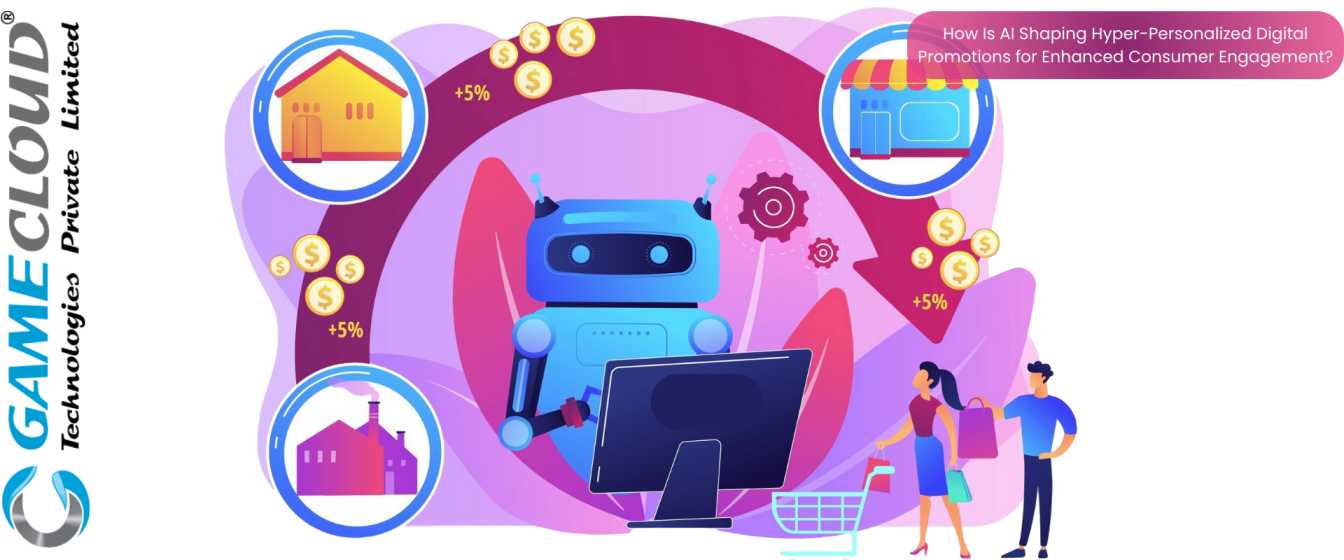
AI has transformed digital marketing by enabling brands to deliver hyper-personalized experiences that resonate deeply with individual consumers. This shift goes beyond simply addressing customers by name or recommending products they’ve previously viewed; AI-driven personalization uses sophisticated algorithms and real-time data to offer highly relevant content and offers tailored to each consumer’s unique behaviors and preferences. This evolution in marketing is creating stronger consumer relationships, increasing brand loyalty, and driving engagement at unprecedented levels.
The Power of Hyper-Personalization in Modern Marketing
Hyper-personalization is an advanced approach to digital marketing that leverages AI and vast data sources to tailor experiences in real-time. Unlike traditional personalization, which is often limited to customer segmentation and past interactions, hyper-personalization digs deeper. AI analyzes extensive behavioral data, such as browsing history, social media interactions, and even purchasing patterns, to understand not just who the customer is but what they’re likely to need or want next. For instance, a customer browsing for hiking boots might be shown additional options based on their terrain preferences, past outdoor purchases, or even seasonal trends. This level of anticipation and relevance strengthens the customer’s connection with the brand, making each interaction feel uniquely tailored.
AI Techniques Enabling Hyper-Personalized Engagement
AI employs several innovative techniques to facilitate hyper-personalization. One prominent method is predictive analytics, which analyzes historical and real-time data to forecast future consumer behavior. By identifying patterns and trends, predictive analytics allows marketers to anticipate and address customer needs before they’re expressed. Another powerful AI tool is NLP, which helps virtual assistants and chatbots respond to customer queries in conversational language, providing a seamless experience. Additionally, machine learning algorithms enable AI systems to continually learn and adjust based on new data, keeping personalization strategies fresh and aligned with evolving consumer behavior. Together, these techniques equip brands with the tools to engage consumers with highly relevant, timely messages.
Success Stories in AI-Driven Hyper-Personalization
Many companies have already leveraged AI to achieve impressive results in consumer engagement. Amazon’s recommendation engine is a standout example, analyzing individual user behaviors and preferences to suggest products that often align closely with what users are looking for. This AI-driven approach is responsible for a significant portion of Amazon’s sales. Similarly, Netflix’s AI-powered content recommendations personalize each viewer’s experience based on viewing history, ratings, and individual preferences, leading to higher viewer retention and satisfaction. Spotify, too, has harnessed AI to craft personalized playlists, turning user data into unique, tailored music experiences that keep users returning.
Navigating Challenges and Ethical Considerations in AI Personalization
While the benefits of AI-driven hyper-personalization are substantial, there are important ethical and practical challenges to consider. One major concern is data privacy, as consumers are increasingly wary of how their information is collected and used. It’s crucial for businesses to prioritize transparency and comply with data protection laws to maintain consumer trust. Over-personalization is another potential pitfall; too much personalization can come across as intrusive, making consumers uncomfortable. Finally, AI models can inadvertently reinforce biases present in the training data, leading to discriminatory outcomes. Continuous monitoring and updating of AI systems can help mitigate these risks, ensuring that hyper-personalized promotions are both effective and ethical.
Promocious: Crafting Connections, One Digital Experience at a Time
At Promocious, the subdivision of GameCloud for online promotions, we specialize in creating dynamic and engaging digital campaigns tailored to elevate brands in today’s competitive landscape. Our team combines AI-driven strategies with creative storytelling to craft bespoke campaigns that resonate with audiences across social media, gaming, and beyond. From influencer partnerships to immersive social media experiences, we’re committed to helping brands foster lasting connections with their customers. At Promocious, our mission is to turn digital interactions into loyal relationships, one campaign at a time.
Conclusion
In conclusion, AI is reshaping digital marketing by enabling hyper-personalized promotions that significantly enhance consumer engagement. By analyzing and anticipating individual needs, AI allows businesses to create meaningful interactions that foster loyalty and satisfaction. However, brands must navigate the associated challenges thoughtfully, upholding data privacy and ethical standards to build lasting trust with consumers.
For Know More Contact-Now
FAQs for : How Is AI Shaping Hyper-Personalized Digital Promotions for Enhanced Consumer Engagement?
What is hyper-personalization, and how does it differ from traditional personalization?
Hyper-personalization uses AI and real-time data to create highly tailored experiences for individual consumers. Unlike traditional personalization, which focuses on basic segmentation or past interactions, hyper-personalization delves deeper into behaviors, preferences, and predictive insights to anticipate consumer needs and deliver relevant content.
What AI techniques are used to enable hyper-personalized consumer engagement?
AI employs methods like predictive analytics, natural language processing (NLP), and machine learning to facilitate hyper-personalization. These techniques analyze behavioral patterns, improve chatbot interactions, and continuously adapt to new consumer data to provide timely and relevant recommendations.
Can you provide examples of companies successfully using AI for hyper-personalization?
Prominent examples include Amazon, which uses AI-powered recommendation engines to suggest products based on user behavior, and Netflix, which personalizes content recommendations to match viewing preferences. Spotify’s custom playlists tailored to individual listening habits also demonstrate the effectiveness of AI-driven personalization.
What are the ethical considerations involved in AI-driven hyper-personalization?
Key ethical concerns include data privacy, transparency, and avoiding over-personalization, which may feel intrusive to consumers. Additionally, businesses must address biases in AI models to ensure fair and non-discriminatory outcomes. Adhering to data protection laws and maintaining open communication with users can help build trust.
How does Promocious enhance consumer engagement through digital promotions?
Promocious, a subdivision of GameCloud, combines AI-driven strategies with creative storytelling to design bespoke digital campaigns. By leveraging social media, influencer partnerships, and immersive experiences, Promocious helps brands foster meaningful, long-lasting relationships with their audience.
